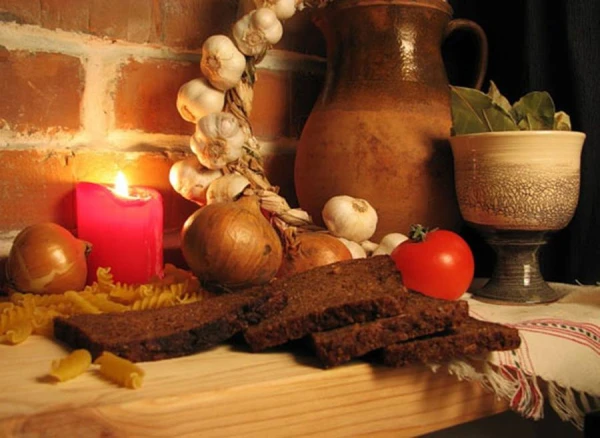
On November 28, Orthodox churches commemorate three Christian martyrs—Gury, Samon, and Aviv—who lived in the 3rd-4th centuries and suffered for their faith in Jesus Christ. In the folk calendar, this day is called Gury's Day. At this time, the 40-day Christmas fast begins, preparing believers for the celebration of the Nativity of Christ.
Gury and Samon, who lived in Edessa during the reign of Emperor Diocletian, were originally pagans. After hearing the inspiring sermons of a local priest, they converted to Christianity and became preachers. Upon learning this, the authorities demanded that they renounce their faith. However, Gury and Samon did not succumb to persuasion.
When life in the city became unbearable, they decided to leave. The pagans found the defiant Christians, condemned them, and imprisoned them, where they were subjected to brutal torture. But they could not break their spirit. After several years in captivity, the Christians were beheaded.
Deacon Aviv shared their fate. He was arrested by order of Emperor Licinius. At first, they also tried to persuade him to renounce Orthodoxy. Upon hearing his refusal, the enraged pagans threw the clergyman into the fire.
The flames did not harm Aviv. However, he died from torment and torture. Relatives, acting under the cover of night, took his remains and buried them in the tomb where Gury and Samon rested.
Folk Calendar: Gury Day
Gury Day, celebrated on November 28 (November 15 in the old style), coincides with the beginning of the 40-day Christmas fast, also known as the Philip's Fast. This fast, which ends on January 6 of the following year, is considered one of the longest and strictest.
It imposes many restrictions—both spiritual and physical. During the fast, eggs, dairy, and meat products are prohibited. Fish is allowed on certain days. Therefore, on the eve, our ancestors tried to indulge themselves with delicious treats.
The folk holiday dedicated to the holy martyr was called the “Day of the Exorcist of Evil.” Ancestors believed that on November 15 (in the old style), Gury gets into a sleigh and sets off to drive away the frost.
Thus, the horses, which were full participants in the events of Gury Day, received special care and attention. Usually, the cold after Gury Day receded almost until the Holy Days, which last from January 7 to 17.
Gury Day: What to Do
Gury is considered the patron of the home, especially of housewives. Therefore, on Gury Day, it is customary to pray for the well-being of families and the health of their guardians—women.
Our ancestors began the morning by visiting the church. Women asked the saint to guide their husbands, who were prone to alcohol and behaved inappropriately, back to the right path. It was believed that the saint helps restore peace and love in the home.
Young women would ask for help in meeting worthy men who could become faithful husbands. Ancestors knew that it was worth turning to Gury when experiencing toothaches. The saint helps heal other ailments as well.
Gury Day: Folk Omens
Ancestors knew: if on Gury Day the wind howls, it will not calm down until the end of December. If the weather is warm, it foretells much rain in the spring. If loud neighing of horses is heard on Gury Day, the winter will be mild.
What Not to Do on Gury Day
One of the main prohibitions is quarreling and resolving conflicts. On Gury Day, this is strictly forbidden. Violators will face misfortunes and troubles.
The elders believed that during this time, one should not engage in cleaning the house. Along with the trash, one might inadvertently carry away luck and financial well-being. To avoid misfortunes, it was said that one should adhere to traditions, wise peasants would say.














Leave a comment